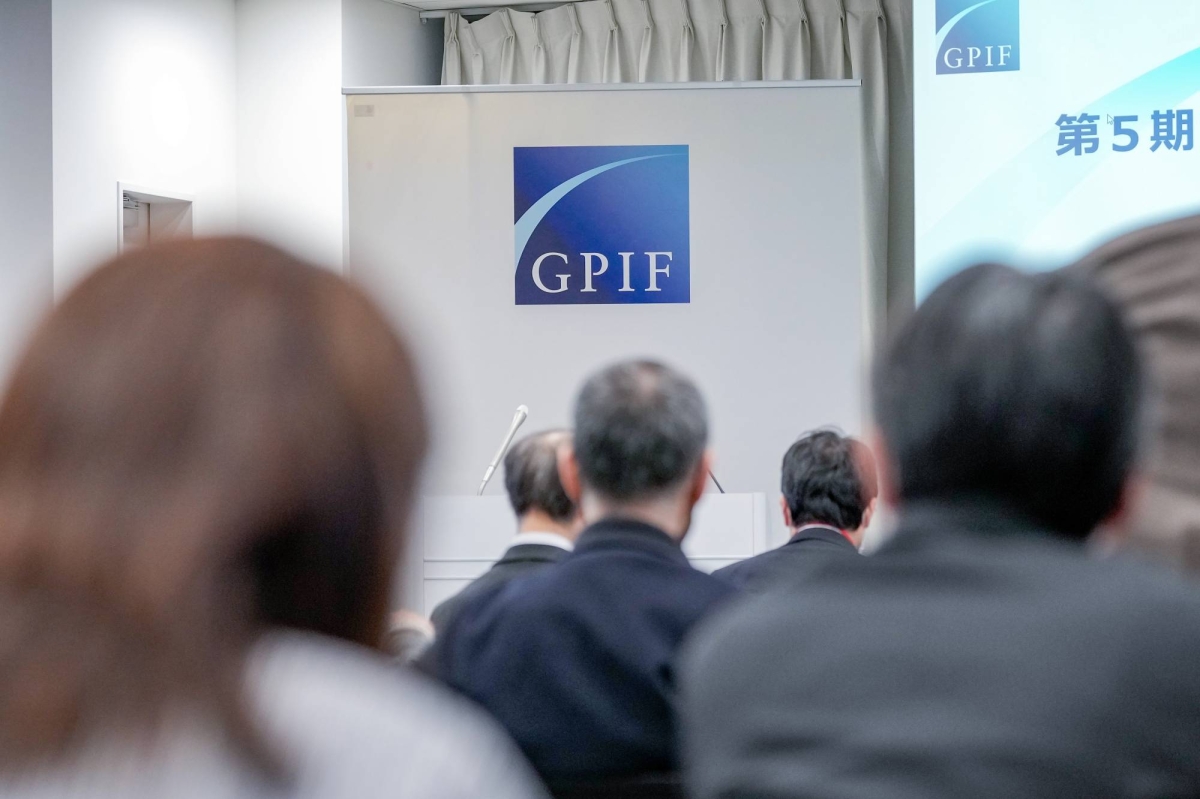Japan’s GPIF underlines impact shift in sustainability report
The world’s largest pension fund, with €1.5trn in assets under management, is researching how best to implement its impact strategy, considering aspects such as impact measurement and monitoring.
Japan’s Government Pension Investment Fund (GPIF), the world’s largest pension fund with ¥260trn (€1.5trn) in assets under management, has taken a further step towards adoption of a more impact-oriented investment strategy with the publication of its latest ‘Sustainability Investment’ report.
The name change for an annual publication previously known as an ESG report seeks to entrench GPIF’s move towards a more sustainability-linked investment strategy that considered social and environmental impact in addition to ESG-related measures.
The shift in thinking was signalled in policies published in March in response to plans drawn up by Japan’s ministry of health, labour and welfare, the ministry to which GPIF reports.
Uchida Kazuto, GPIF’s president, said in the new report that the pension fund is an investor entrusted with a large amount of money to invest in securities spanning the global capital market, while also managing assets from a multi-generational perspective. Given that unique positioning, the pursuit of investment that took into account how to reduce sustainability-related risks and improve the overall sustainability of markets should be a key value for GPIF as it seeks to secure long-term investment returns, he added.
“From this perspective, we will consider making investments with a consideration for the effects that the investee companies have on society and the environment – in other words, their ‘impact’ – and implement the initiatives necessary to achieve this,” Kazuto said.
What this would entail in terms of asset allocation size and investment types has yet to be detailed, but any change in strategy by the fund could have a significant effect in some of the markets in which it invests. Currently, GPIF’s portfolio asset allocation is divided roughly equally between domestic equities, foreign equities, domestic bonds and foreign bonds.
GPIF said it plans to research how to best to develop its impact investment strategy in the current fiscal year and produce a market overview. It is looking at factors including measurement and reporting of impact indicators in existing investment projects, the relationship between impact and investment returns, and the classification and positioning of impact investment by foreign asset owners in terms of fiduciary duty.
The fund also plans to study the status of initiatives being undertaken by asset owners engaged in impact investment, investment performance, and monitoring methods incorporating impact.
GPIF’s shift towards greater regard for impact in its investment strategy echoes similar approaches taken by pension funds and other financial institutions in Europe and elsewhere alert to impact investment as an avenue to maximising returns for stakeholders in the long-term.
Impact investing has been gathering momentum in Japan, albeit from a low base compared to the leading countries in the sector. A survey of more than 50 organisations carried out by GSG Impact Japan – a national partner in the GSG Impact global network – recorded a 50% annual rise in assets under management classified as impact investments in the fiscal year 2024 to ¥17.3bn (€98m).
Part of this pick-up was due to a government drive to get large financial institutions and private lenders to use impact investing techniques to channel more funds into tackling the country’s growing social and environmental pressures, such as those caused by Japan’s ageing population.
GSG Impact Japan said the publication of guidelines for impact investment by the Japanese Financial Services Agency, and the establishment of a Public-Private Partnership Impact Growth Fund by the Tokyo Metropolitan Government are among developments that have added momentum. Japan’s private sector associations have also outlined plans for their members to allocate more to impact investing.





